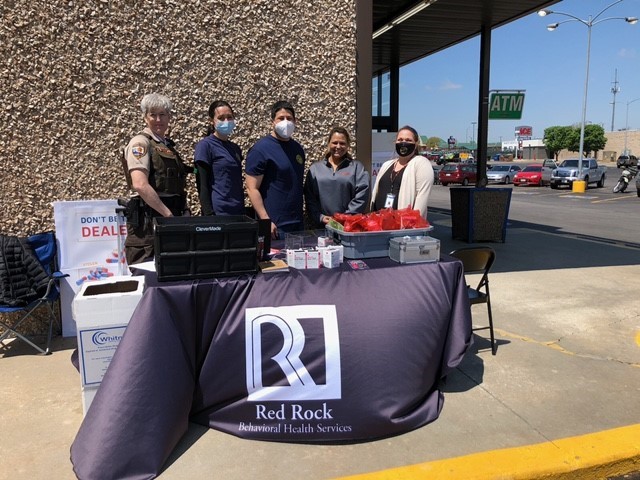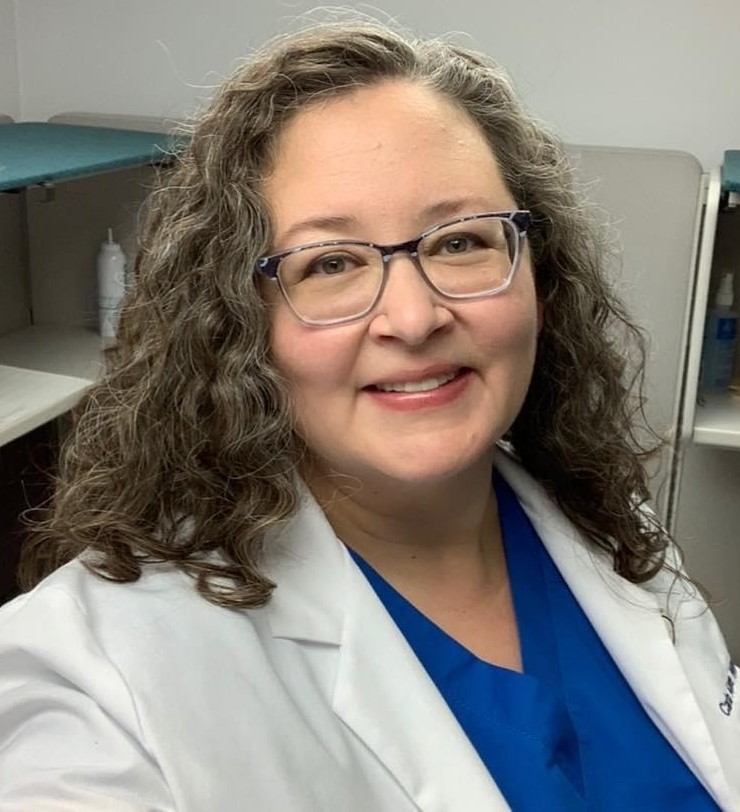On April 22, the Indian Health Service Clinton Service Unit pharmacy staff partnered with the Cheyenne and Arapaho Tribes, Custer County Sheriff’s Office, Red Rock Behavioral Health Services, and Southwestern Oklahoma State University to coordinate an event for National Prescription Drug Take Back Day. This nationwide event and day, hosted twice each year by the Drug Enforcement Administration, encourages community members to dispose of unused, unwanted and expired prescription medications for proper and safe disposal.
Volunteers at the Drug Take Back Day event worked together to support a safe, drive-through drop-off collection site for community members to dispose of unused or unwanted medications. At the April event, 75 pounds of unused or unwanted medications were collected. During an event in October 2022, the site collected approximately 331 pounds of unused or unwanted medications for destruction, which is a record for the state of Oklahoma. The team also promotes broad harm reduction activities during the events, including furnishing naloxone and medication lock boxes.
According to the Oklahoma State Department of Health, from 2007 to 2016, prescription opioids were the most common drug involved in drug overdose deaths in Oklahoma. The 2021 National Survey on Drug Use and Health reported that among people 12 or older, 9.2 million Americans misused opioids in the last year. The survey has historically identified that the majority of abused prescription drugs were obtained from family and friends, often from the home medicine cabinet.
Too often, unused prescription drugs find their way into the wrong hands, which is dangerous and can end in tragedy. Unused or expired prescription medications threaten public health and safety and can lead to accidental poisoning, abuse or misuse, and overdose. Proper disposal of unused drugs can save lives and protect the environment.
There are several reasons why prescription medications may build up over time, including:
- Prescriptions received following an injury or hospitalization;
- Side effects or drug interactions occurring when starting new medications;
- Unused medications following the death of a family member or loved one;
- Frequent dose changes; or
- Simply not knowing what to do with leftover prescription drugs.
Proper disposal of unwanted or unused medications will help protect the environment and decrease the risk of potential misuse and abuse of medications among family and friends. Providers and pharmacies promote patient education surrounding the removal of unwanted or unneeded medications from the home in various ways. For more information, please visit the IHS medication disposal webpage.
Thank you to Cmdr. Narcisso Soliz, PharmD, pharmacy director, Clinton Service Unit; Lt. Cmdr. Julie Boese, PharmD, clinical pharmacist, Clinton Service Unit; and Brittani Brice, prevention coordinator, Red Rock Behavioral Services; for helping to contribute to this blog.

Clinton Service Unit, Red Rock Behavioral Health Services, and Custer County Sherriff’s Office staff hosting a Drug Take Back Day event on April 22, 2023.



